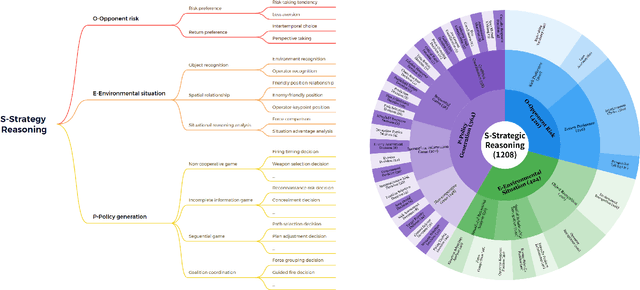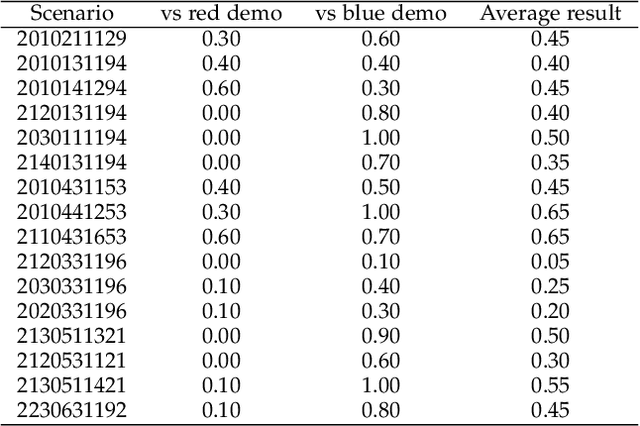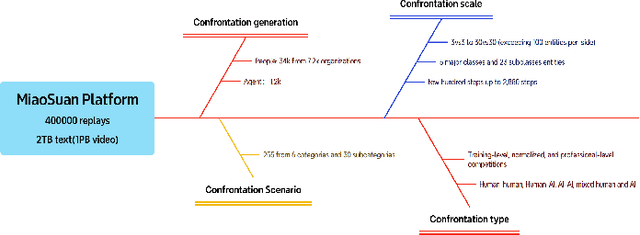Shengqi Shen
WGSR-Bench: Wargame-based Game-theoretic Strategic Reasoning Benchmark for Large Language Models
Jun 12, 2025



Abstract:Recent breakthroughs in Large Language Models (LLMs) have led to a qualitative leap in artificial intelligence' s performance on reasoning tasks, particularly demonstrating remarkable capabilities in mathematical, symbolic, and commonsense reasoning. However, as a critical component of advanced human cognition, strategic reasoning, i.e., the ability to assess multi-agent behaviors in dynamic environments, formulate action plans, and adapt strategies, has yet to be systematically evaluated or modeled. To address this gap, this paper introduces WGSR-Bench, the first strategy reasoning benchmark for LLMs using wargame as its evaluation environment. Wargame, a quintessential high-complexity strategic scenario, integrates environmental uncertainty, adversarial dynamics, and non-unique strategic choices, making it an effective testbed for assessing LLMs' capabilities in multi-agent decision-making, intent inference, and counterfactual reasoning. WGSR-Bench designs test samples around three core tasks, i.e., Environmental situation awareness, Opponent risk modeling and Policy generation, which serve as the core S-POE architecture, to systematically assess main abilities of strategic reasoning. Finally, an LLM-based wargame agent is designed to integrate these parts for a comprehensive strategy reasoning assessment. With WGSR-Bench, we hope to assess the strengths and limitations of state-of-the-art LLMs in game-theoretic strategic reasoning and to advance research in large model-driven strategic intelligence.
Distributed Deep Reinforcement Learning: A Survey and A Multi-Player Multi-Agent Learning Toolbox
Dec 01, 2022Abstract:With the breakthrough of AlphaGo, deep reinforcement learning becomes a recognized technique for solving sequential decision-making problems. Despite its reputation, data inefficiency caused by its trial and error learning mechanism makes deep reinforcement learning hard to be practical in a wide range of areas. Plenty of methods have been developed for sample efficient deep reinforcement learning, such as environment modeling, experience transfer, and distributed modifications, amongst which, distributed deep reinforcement learning has shown its potential in various applications, such as human-computer gaming, and intelligent transportation. In this paper, we conclude the state of this exciting field, by comparing the classical distributed deep reinforcement learning methods, and studying important components to achieve efficient distributed learning, covering single player single agent distributed deep reinforcement learning to the most complex multiple players multiple agents distributed deep reinforcement learning. Furthermore, we review recently released toolboxes that help to realize distributed deep reinforcement learning without many modifications of their non-distributed versions. By analyzing their strengths and weaknesses, a multi-player multi-agent distributed deep reinforcement learning toolbox is developed and released, which is further validated on Wargame, a complex environment, showing usability of the proposed toolbox for multiple players and multiple agents distributed deep reinforcement learning under complex games. Finally, we try to point out challenges and future trends, hoping this brief review can provide a guide or a spark for researchers who are interested in distributed deep reinforcement learning.
 Add to Chrome
Add to Chrome Add to Firefox
Add to Firefox Add to Edge
Add to Edge